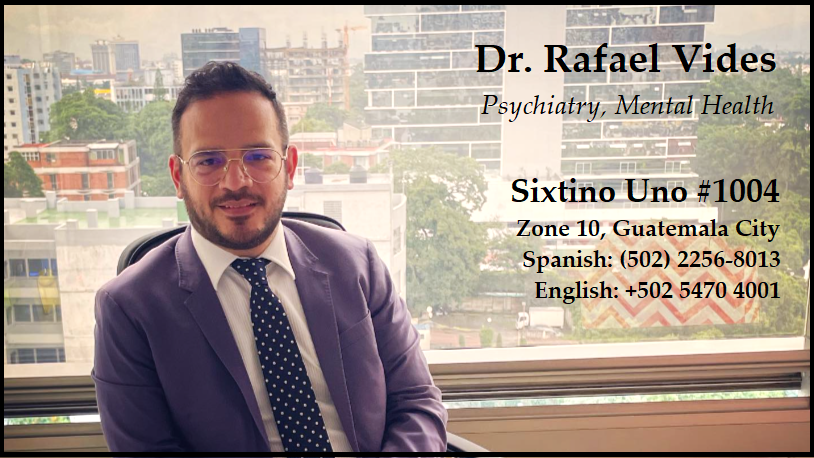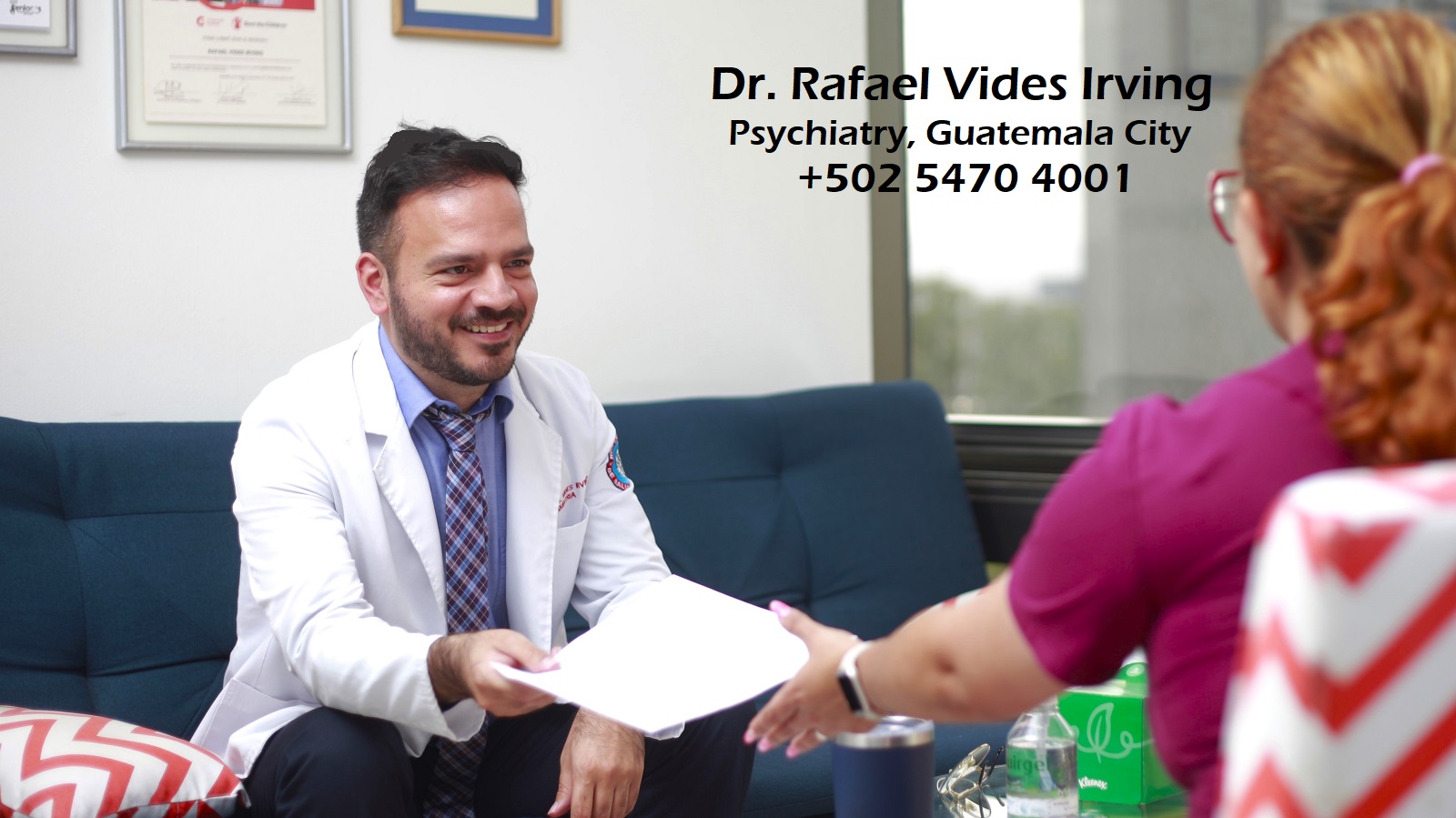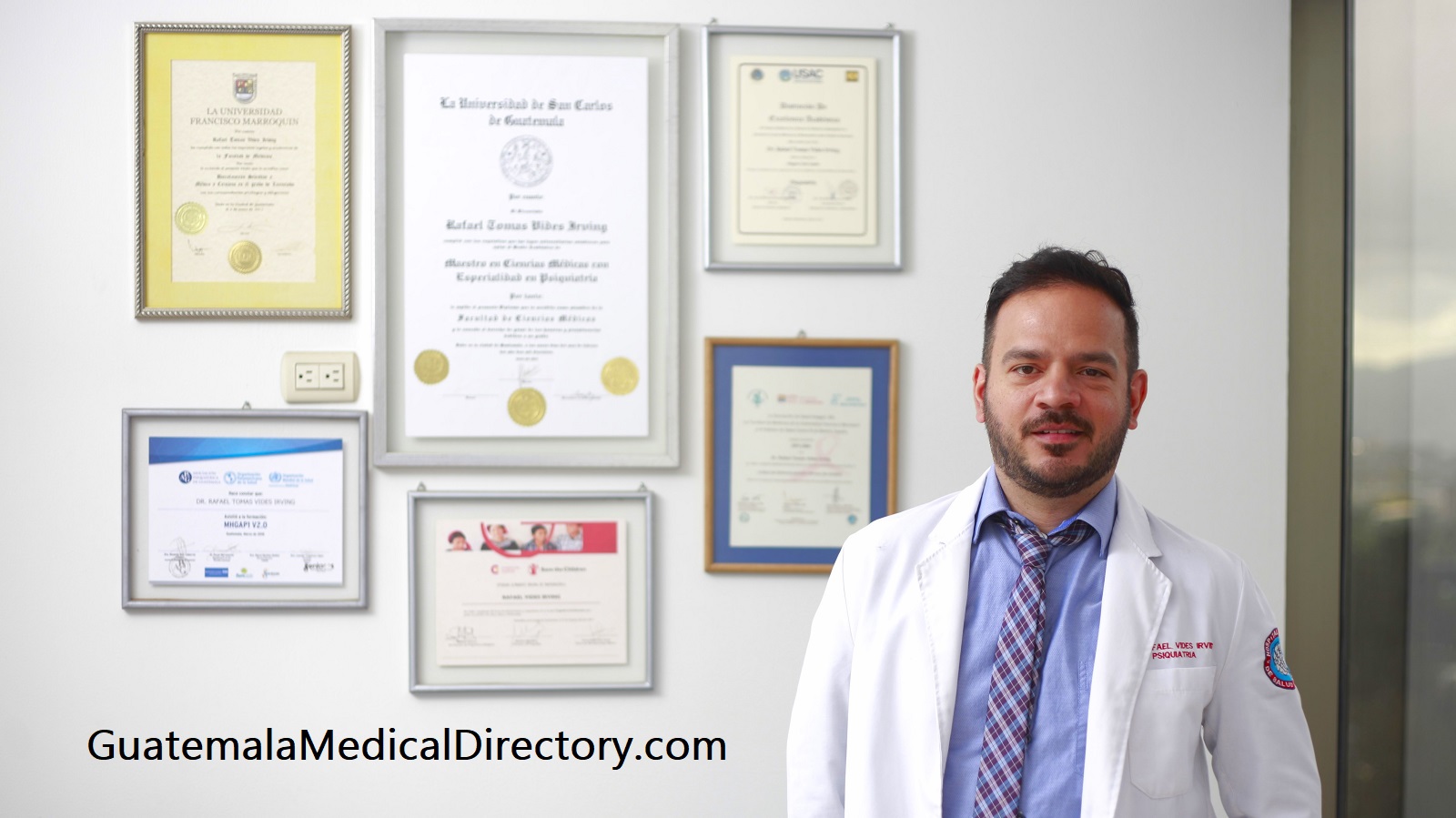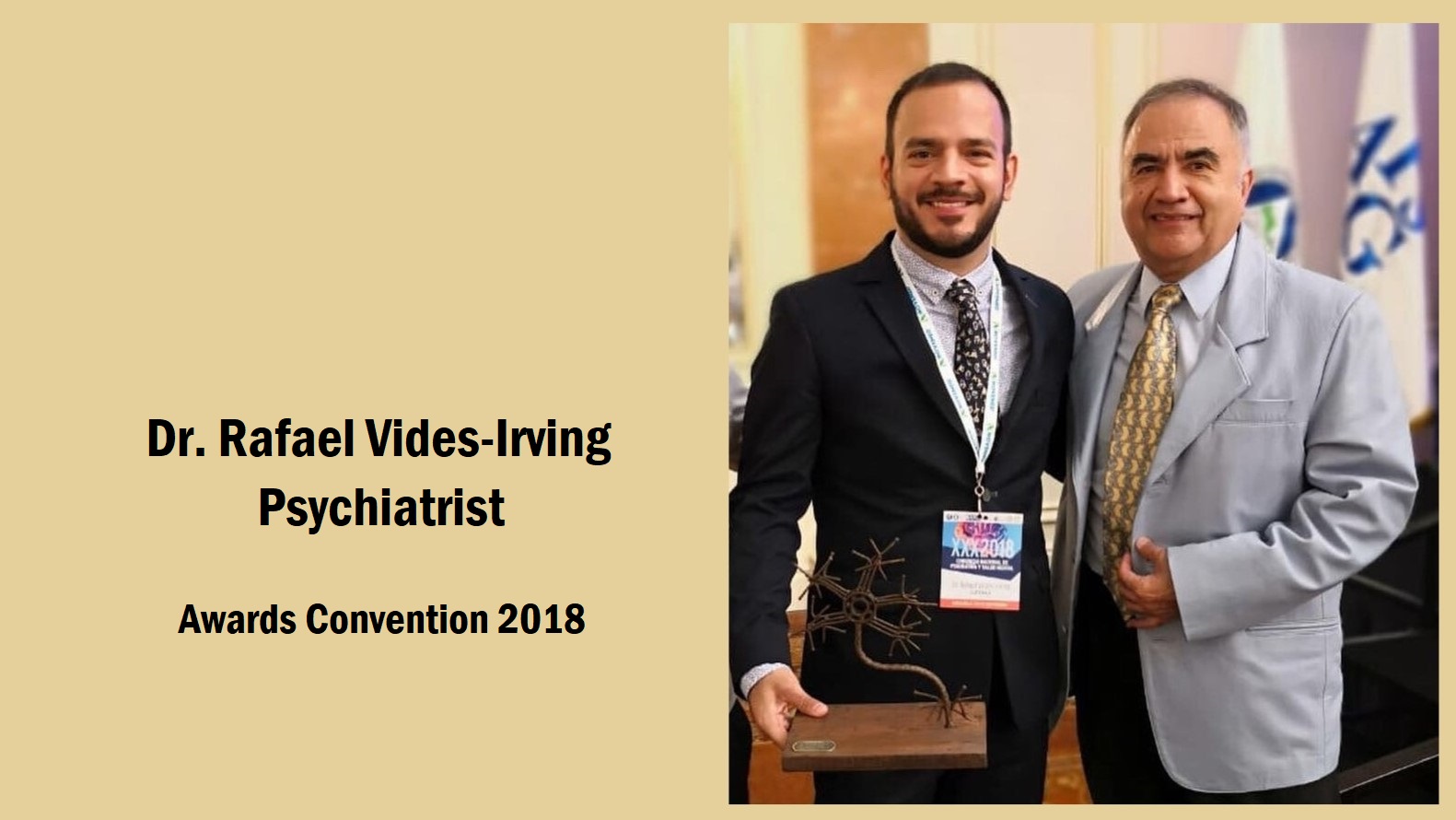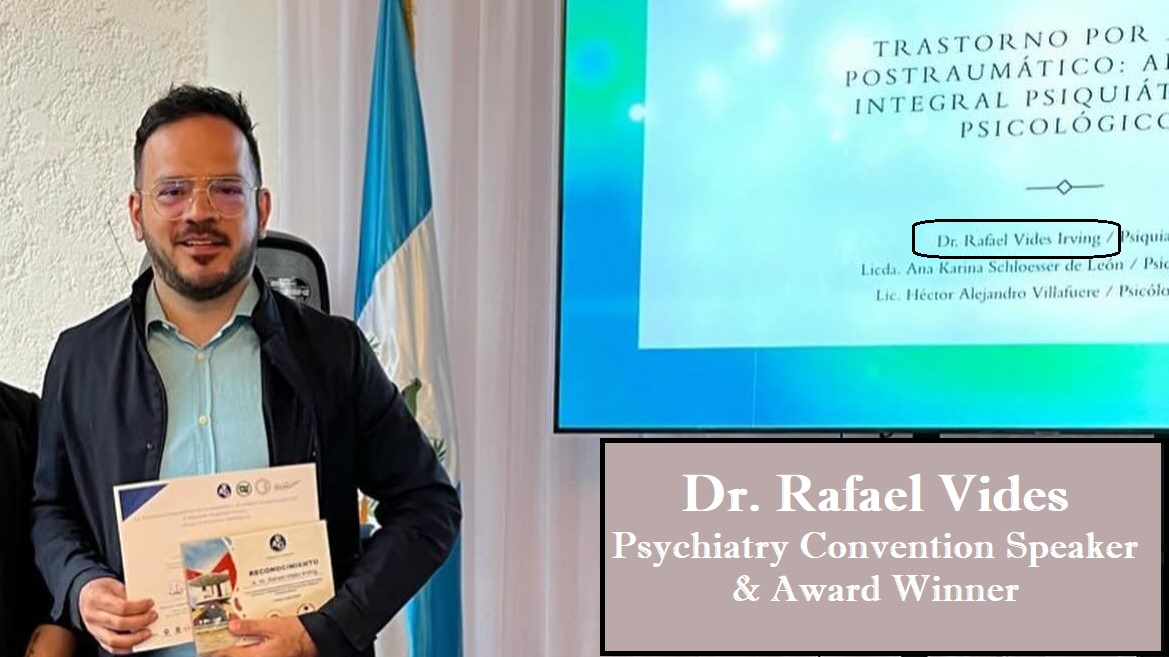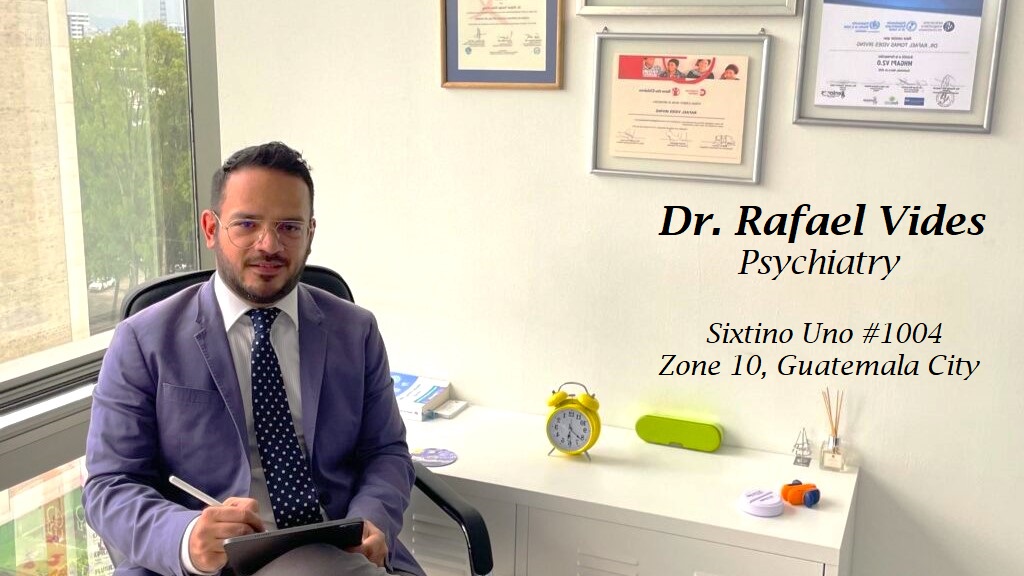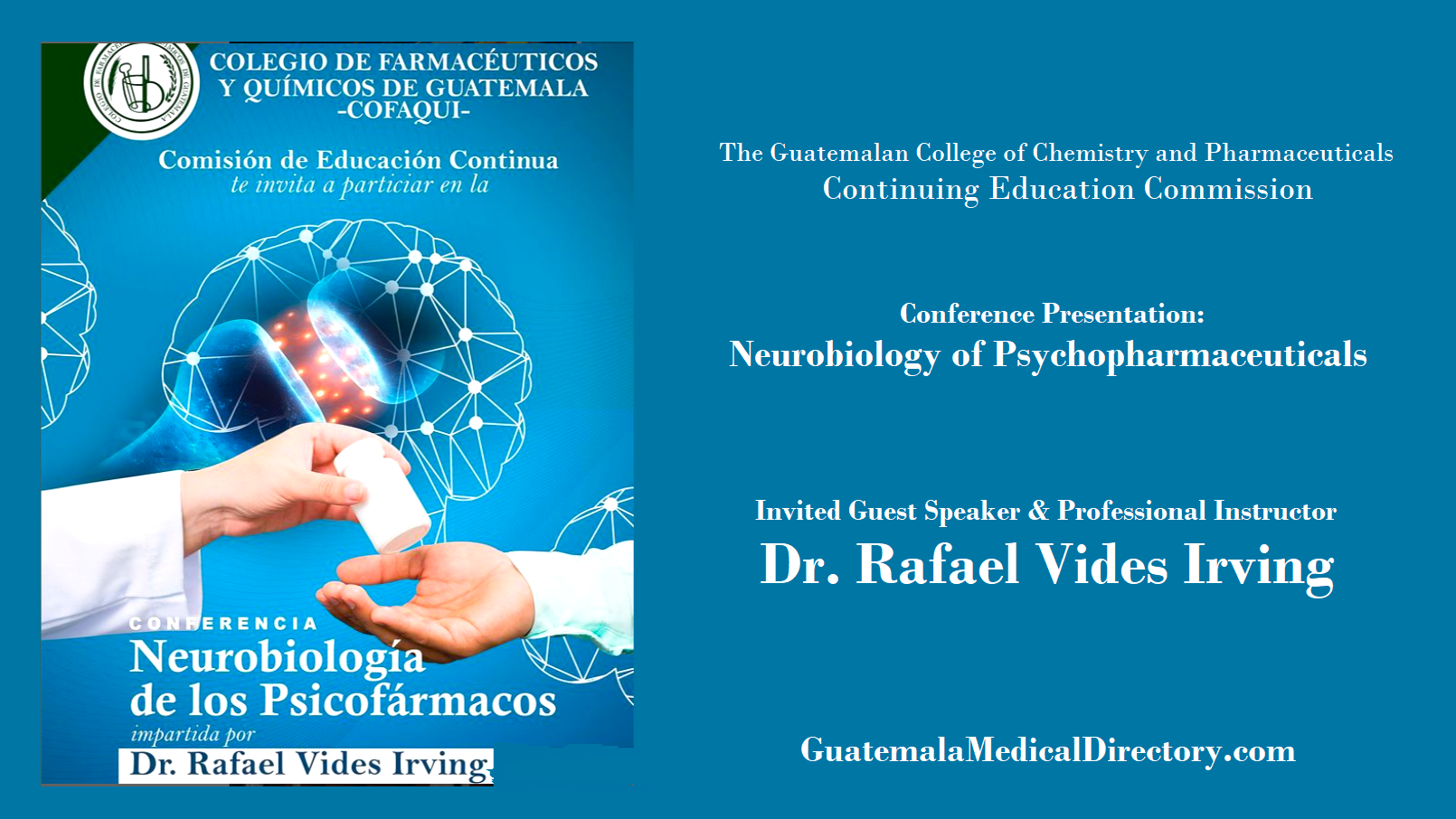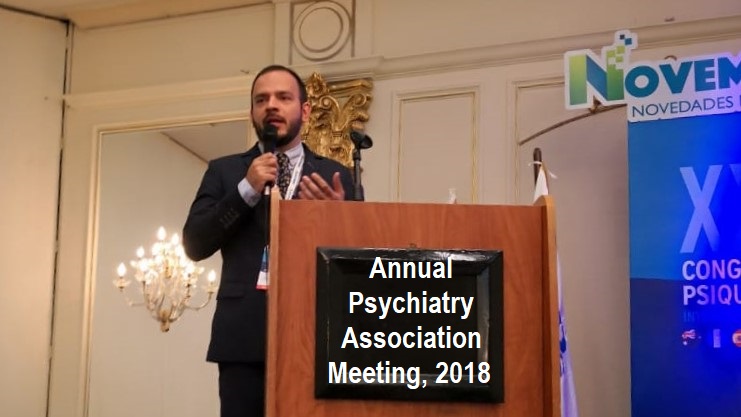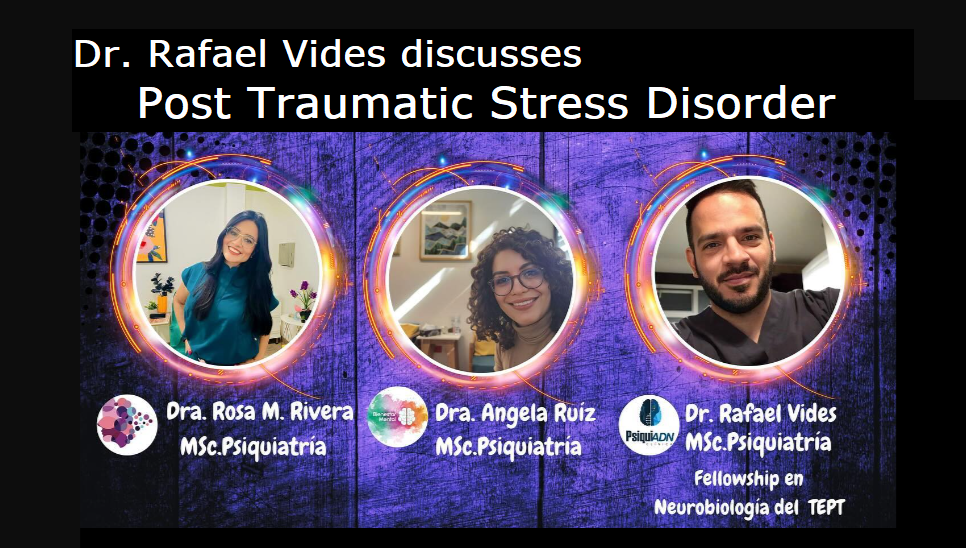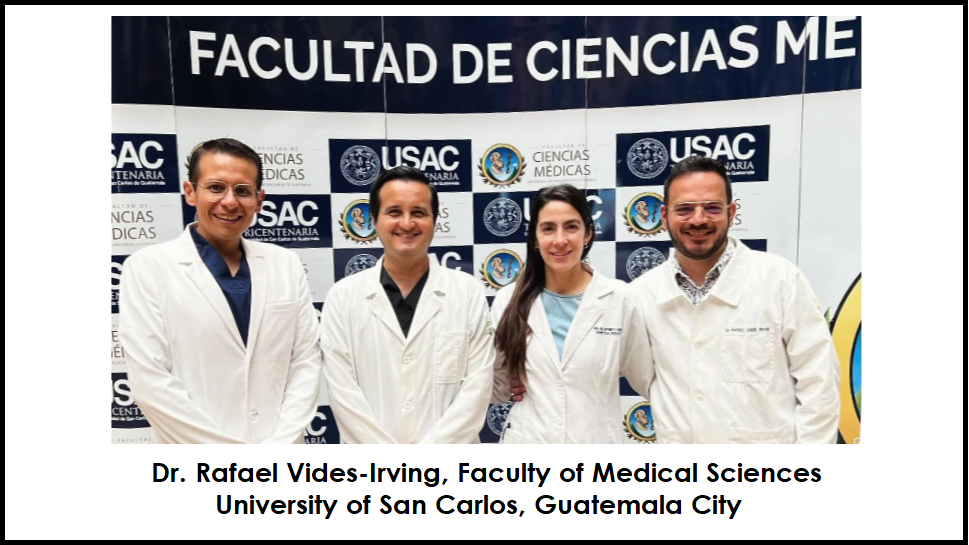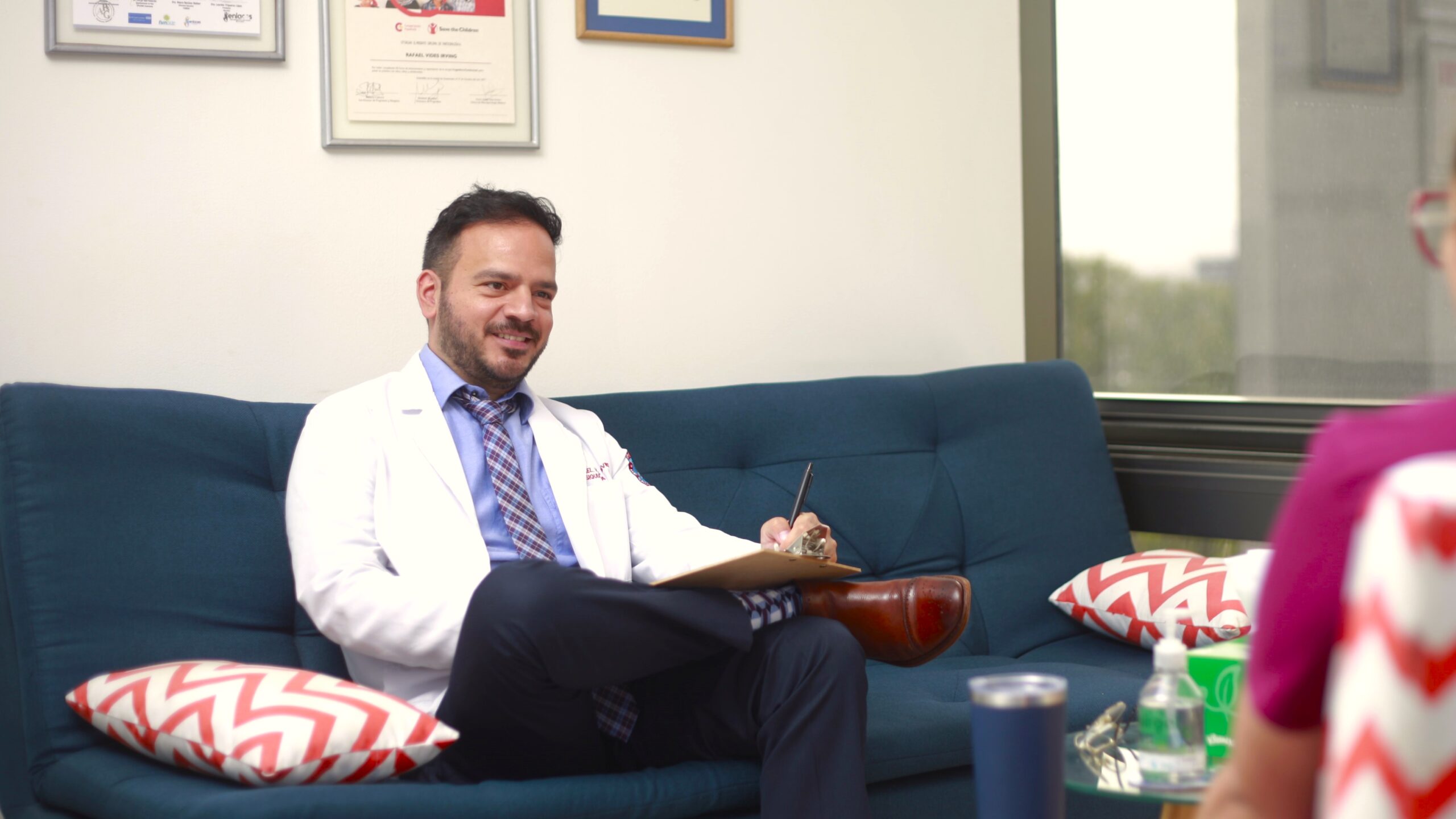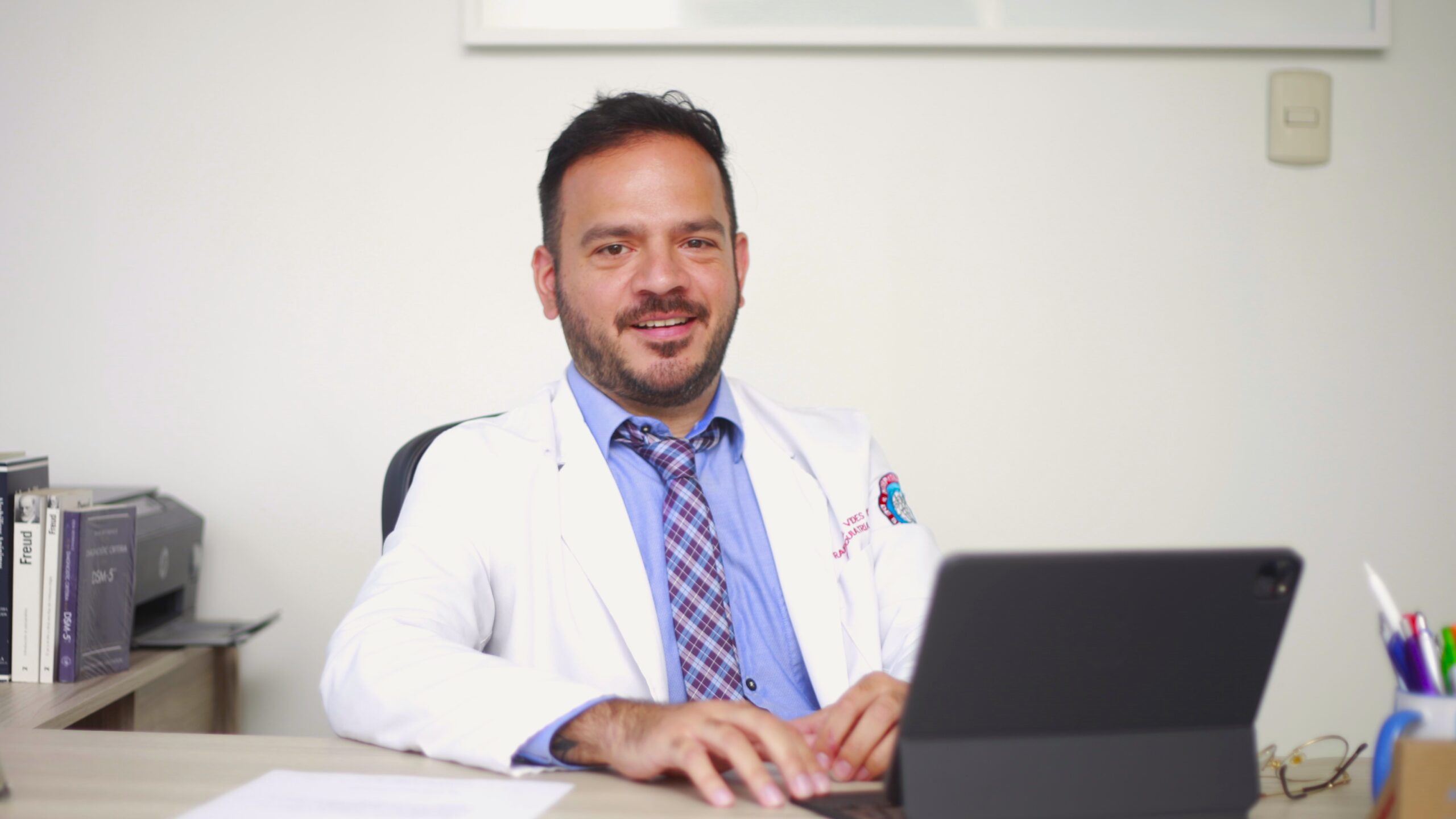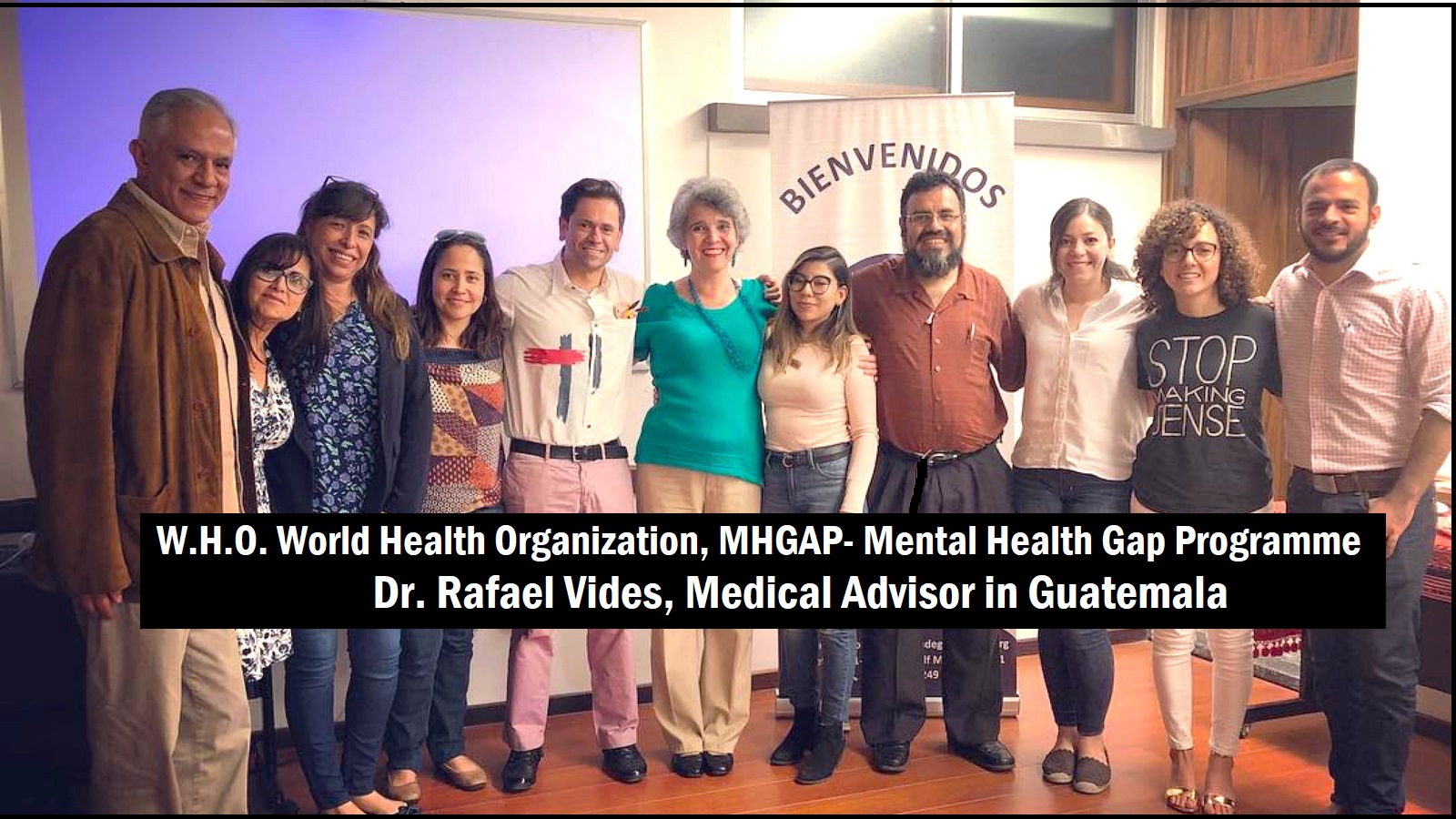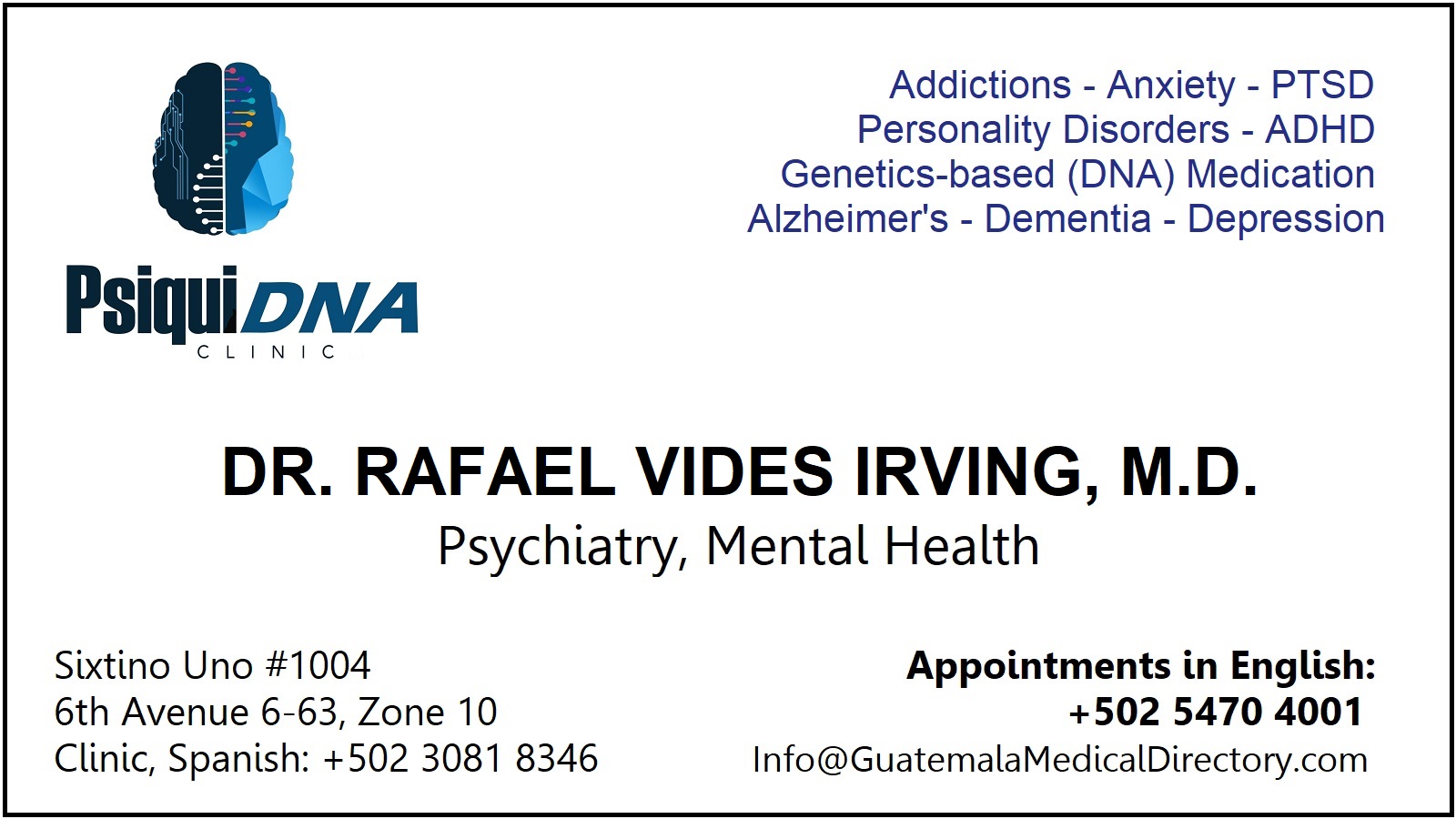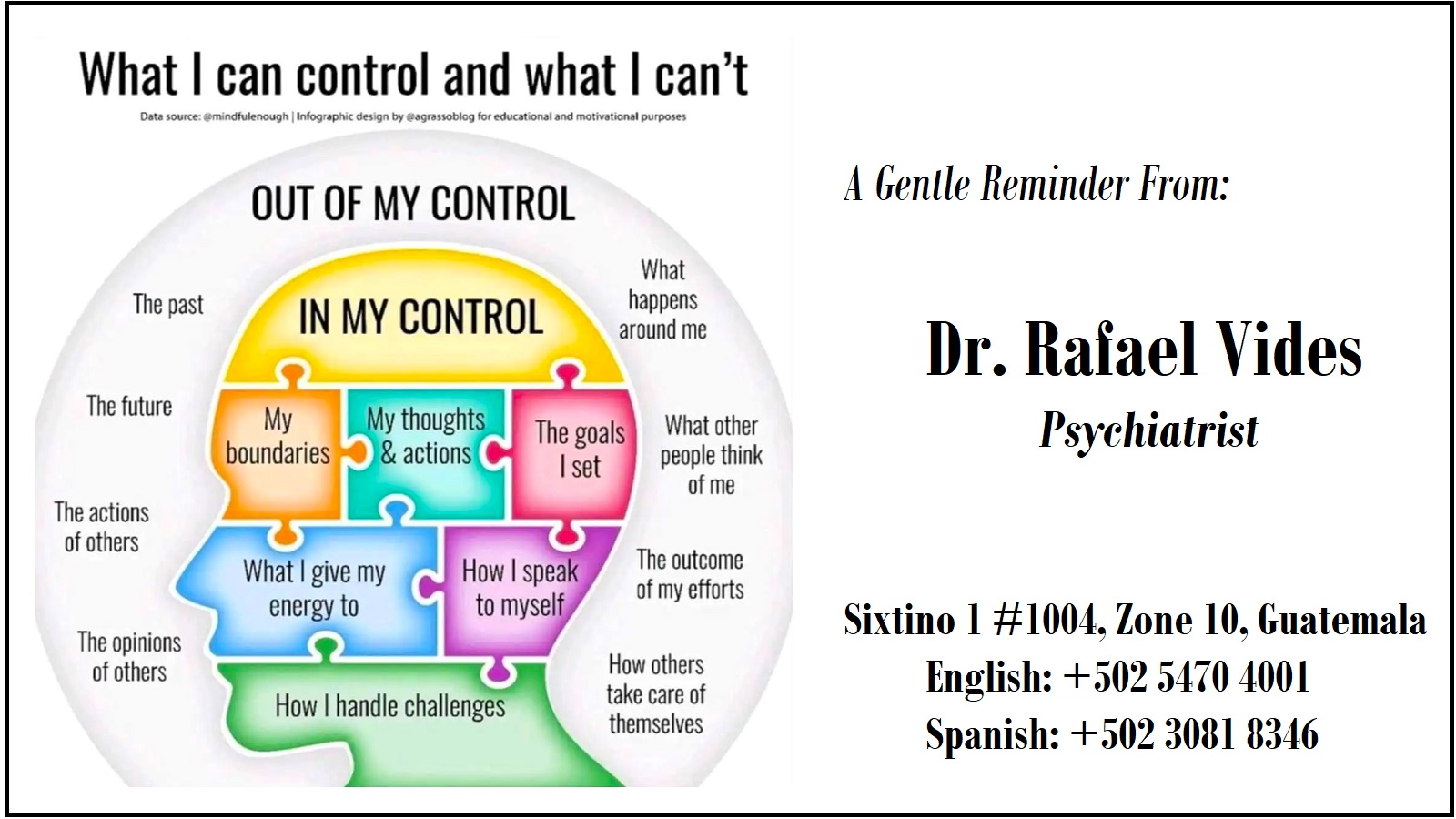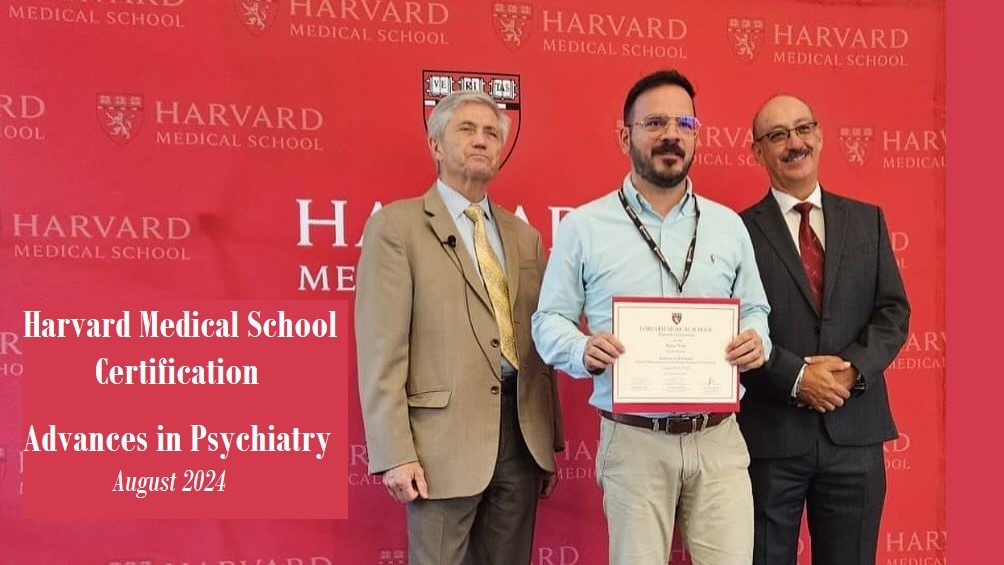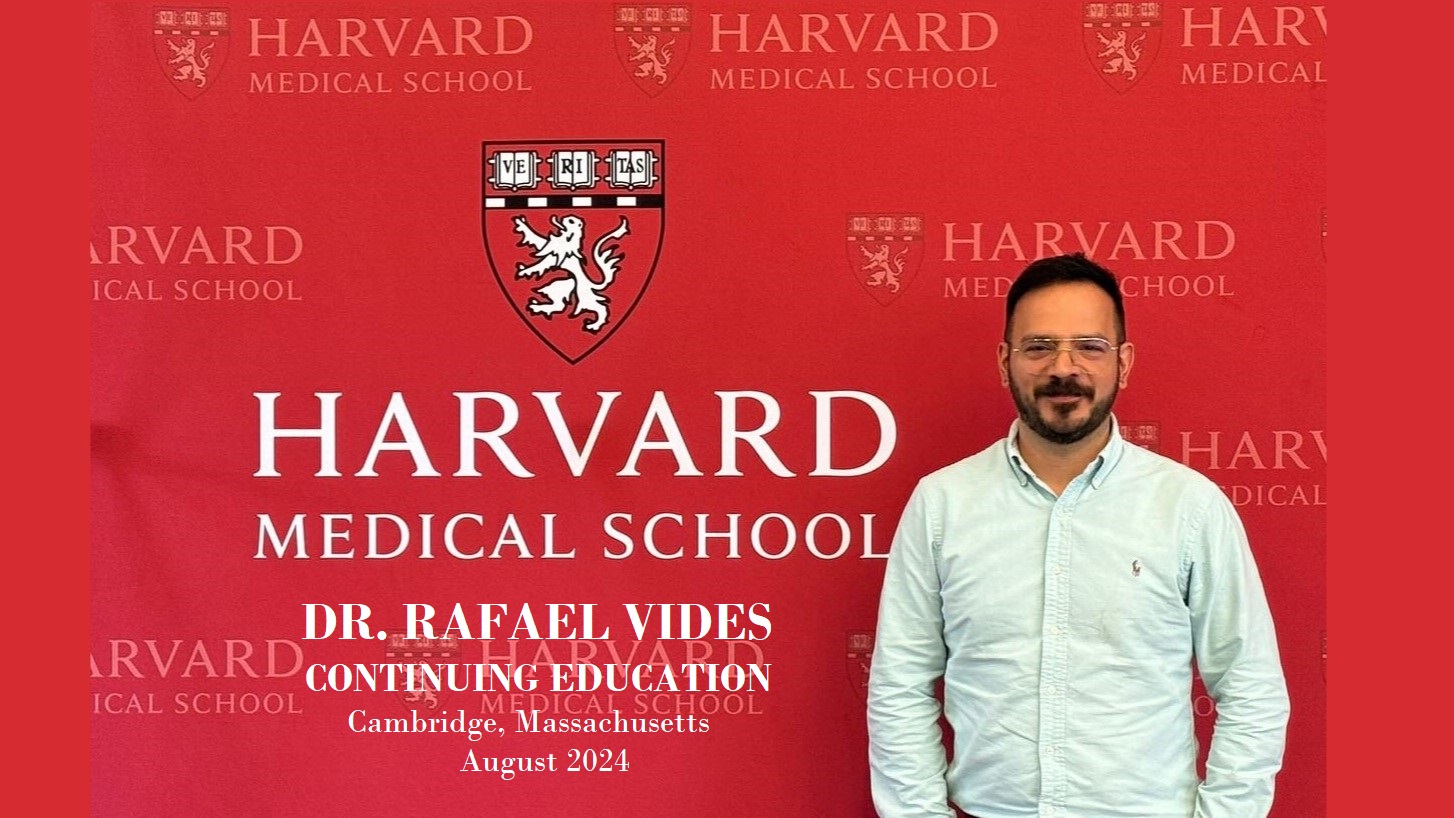PROFESSIONAL PROFILE
Dr. Rafael Vides is a psychiatrist in Guatemala City who treats a full spectrum of mental health disorders in teen-agers and adults, including dementia and Alzheimer’s disease in the elderly population. He has completed advanced certifications in the neurobiology of post-traumatic stress disorder and in genetics-based pharmacology, known as “precision medicine”, with prescribed medication being determined by DNA screening.
Dr. Vides takes a holistic view of each patient, looking at their mental and physical health as well as their emotional, social, and spiritual well-being. In the diagnostic process, he considers not just psychiatric findings, but environmental issues involving work, home, and family.
Bi-directional illness refers to distinct afflictions of the body and mind that cannot be separated. Physical and psychological disorders go both ways feeding each other, and for that reason they must be recognized and treated at the same time. For example: diabetes and depression. Are the symptoms, progression, and treatments interrelated? Drug addiction or insomnia by themselves are not disorders, but the result of something else that is happening in the mind and body. Dr. Vides must prepare an integral report of mental and physical functionality to determine the root cause of the patient’s discomfort, then use various methods to initiate an evolving treatment plan.
The doctor will always order blood tests to know there is no physical problem. Deficiency in vitamin-B, vitamin-D, iron, or hormones could all cause behavioral problems. To confirm suspected symptoms, an MRI, electroencephalogram (EEG), or neurological testing for epilepsy provide insights into the cause of the problem. Then, renal and hepatic tests will check that the patient can metabolize their medications effectively.
During your first meeting with Dr. Vides, he will learn more about your family history and present health status, and then try to explain what is happening to you. The goal is to diminish what is making you suffer. Is it anxiety, negative thinking, chemical imbalance, or simply worrying about things that will most likely never happen? Somatic anxiety manifests physically as tension, diarrhea, unexplained pain, or headaches. Dr. Vides tells us that there are scales to measure levels of anxiety, so we can quantify the progress as the patient improves. It’s important to know that most psychiatric medications are not addictive.
Prescribing medications that will achieve the most physical and psychological benefit with the least amount of side effects can be a tricky equation to solve. Dr. Vides has an important tool to guide his decisions: Precision medicine based on DNA screening.
Dr. Vides says, “I don’t want patients to be trying various medications as a test of which one will produce good results for them. It’s not a fair investment for them with the time and costs involved. With genetic testing of the patient’s DNA, we have a better understanding of what will be most safe and effective for their needs, so I can make accurate prescription choices the first time.”
Pharmacogenetic testing or precision medicine examines how individual genetic differences might affect the way a patient’s body will respond to certain drugs. With the DNA results, providers of medications for the central nervous system can evaluate safety, determine dosage, and even reveal your risk factors for developing certain illnesses later in life. Knowing that your genetic makeup is predisposed for contracting certain diseases gives you the chance to begin steps toward prevention.
Dr. Vides explains that the brain is also an organ and depression is a disease. Biochemistry of the brain can be compared to any other organ, like lungs or kidneys developing a disease that needs to be treated. Friends might say you can overcome depression with positive thinking; do it on your own, but it’s not a realistic option.
Imagine that your knee is twisted and swollen. You can’t just tell it to feel better with healing thoughts. A proper recovery plan includes therapy, exercise, physical support, daily attention to diet and sleep, plus medications. The disease or illness in your brain needs professional evaluation and medical attention in the same way.
Mental Health Illnesses
Depression is more than just sadness or grief. It causes insomnia, irritability, lack of energy, and intrusive negative thoughts.
Substance Abuse is a pattern of compulsive use that can lead to harmful consequences detrimental to one’s self – social, occupational, legal or interpersonal.
Alzheimer’s, dementia, and cognitive decline are psychiatric in nature because they affect the patient’s behavior. They are not treated effectively by neurologists.
Hormonal Depression is best treated by your gynecologist with hormone replacement therapy. If you are still experiencing symptoms of depression, then get an evaluation with Dr. Vides.
Sexual health is an important part of your comprehensive mental health, without taboos or fears. Men and women of all ages can make wiser choices by confirming their honesty, self-respect, and personal responsibility.
Disorders of behavior and personality: Over-eating/anorexia, hyperactivity, bipolar disorder, obsessive compulsive disorder, acute and post-traumatic stress are disorders of the brain. Some are chronic illness to be stabilized, while others are curable.
Anxiety, Panic Attacks, Phobias. The core problem is dysfunction. When people feel they are losing control it can be corrected by a combination of therapy and medications to become functional again.
Schizophrenia is a serious mental illness that affects how a person thinks and behaves, feeling like they have lost touch with reality, which can be distressing for them and for their family and friends.
Symptoms
Irregular or non-restorative sleep is the first sign that our body and mind show us that something is not right. Insomnia as a disease is extremely rare, as there is always something else causing it.
Substance addictions always have an underlying cause. When someone you care about shows a problematic pattern that causes distress and impairs their life, get help from a mental health professional.
Self-injury is a behavior that can be treated with psychotherapy to identify underlying issues. It could be linked to depression or borderline personality disorder.
Suicidal behavior indicates profound unhappiness but is not necessarily a mental disorder.
Dr. Vides is dedicated to the positive impact he can make with adolescents and teens. He says, “They are usually afraid to open up at first, but when do and start to trust me, it’s very rewarding. Before long, they become committed to getting better and it’s great to see the improvement in their home environment, family relationships, and educational progress.”
Young or old, the most successful patients are the ones with better insight about their problem, knowing it needs to be treated. Introspection is important, and the willingness to come back and stick with the commitment to learn how to get better. Recovery is always more stable with a social network of support. Being around people who care, like their therapist, friends, and family will bring more successful results.
After the patients of Dr. Vides have reached a certain level of psychological improvement, they are referred to a counsellor for regular sessions. It’s less costly and sessions are less frequent. However, the doctor will remain available as part of the team, working hand in hand with the therapist, and offering follow-up monitoring every few months as needed.
Ask Dr. Vides about the following services at his clinic:
- Neurobiology of Post-Traumatic Stress Disorder.
- Psychotherapy
- Personalized prescriptions based on genetics and DNA testing.
- Crisis Intervention and Psychiatric Hospitalization.
- Self-harm and suicide prevention.
- Nutritional counseling – Healthy foods are fuel for healthy brains.
At his clinic, Dr. Rafael Vides offers a safe space of honest communication without judgement to initiate a professional relationship based on trust. He asks all the right questions and listens to your concerns in an empathetic and respectful way. Conversations with the doctor are confidential, but the “new you” full of gratitude and confidence will be noticed by everyone.

